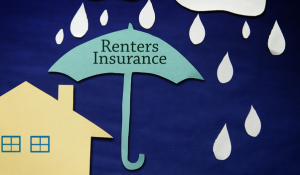Commercial auto insurance is a vital investment for businesses that utilize vehicles in their...
Does Your Auto Insurance Cover Rental Cars?
When you're standing at the rental car counter, tired from travel and eager to get on the road, the last thing you want is confusion about insurance. Yet, you're likely to face this question: "Would you like to purchase insurance coverage for the rental vehicle?" Before saying yes or no, you need to know whether your auto insurance policy already covers rental cars or if you should purchase extra protection.
In this guide, we’ll break down the nuances of rental car insurance, what your personal insurance might cover, how credit cards factor in, and how to avoid paying for duplicate coverage.
Understanding Your Auto Insurance Coverage for Rental Cars
Most standard auto insurance policies extend some level of coverage to rental vehicles, especially when used for personal travel in the United States. However, assuming you're fully protected can be a costly mistake. Each policy is different, and knowing what yours includes is crucial before declining or accepting coverage at the rental desk.
Key Coverages to Review in Your Auto Policy
Before renting a car, ask yourself these essential questions. If you can confidently answer “yes” to all, you may not need additional rental car coverage:
1. Do You Have Liability, Collision, and Comprehensive Coverage?
These three are the pillars of car insurance:
- Liability Insurance: Covers bodily injury and property damage you cause to others in an accident.
- Collision Insurance pays for damage to your car (or a rental) resulting from a collision with another vehicle or object.
- Comprehensive Insurance: Protects against non-collision-related incidents like theft, vandalism, natural disasters, or falling objects.
If you have all three, you're in a strong position when renting a vehicle.
2. Does Your Policy Include Additional Rental-Related Protections?
Some insurance providers offer extended rental protections, such as:
- Administrative fees
- Loss of use (the rental agency's lost revenue while the vehicle is being repaired)
- Towing charges
These extras aren’t always standard, so it’s wise to confirm with your broker or agent.
3. Is Your Personal Property Protected?
If your homeowners or renters' insurance includes “off-premises coverage,” it may extend protection to belongings in your rental car. For example, if your laptop is stolen from the rental vehicle, your home insurance might cover it, up to a certain limit, and subject to your deductible.
Still, not all carriers offer this protection, so it’s important to verify in advance.
What Is Rental Car Insurance—and Is It Worth Buying?
Rental car companies offer optional coverage products that can either supplement or duplicate your personal auto insurance. Here’s a breakdown:
1. Supplemental Liability Insurance (SLI)
Covers third-party bodily injury and property damage claims. If your personal auto insurance already carries high liability limits, you may not need this additional protection.
2. Loss Damage Waiver (LDW) / Collision Damage Waiver (CDW)
This waiver isn’t technically insurance—it’s a contractual agreement that relieves you of financial responsibility if the rental car is stolen or damaged. It often includes:
- Loss of use coverage
- Administrative and towing fees
Be aware: LDW/CDW may become void if you violate the rental agreement (e.g., reckless driving, off-road usage).
3. Personal Accident Insurance
Provides medical coverage for you and your passengers if injured in a crash. It’s useful if you don’t have health insurance or personal injury protection (PIP) in your existing policy.
4. Personal Effects Coverage
Covers theft of personal belongings from the rental car. Again, if your homeowners or renters policy already offers this, you may not need it from the rental agency.
Do Credit Cards Cover Rental Car Insurance?
Yes—many credit cards offer rental car insurance as a perk, but the terms vary widely.
How It Works
To access this benefit:
- You must pay for the full rental with your credit card.
- You usually must decline the rental company’s insurance.
The coverage typically includes damage or theft of the rental car and sometimes loss of use or towing charges. However, this is often secondary coverage, meaning it only kicks in after your primary auto insurance has paid.
Before relying on this, call your credit card company to:
- Confirm your eligibility
- Understand the type and extent of coverage
- Identify any exclusions (e.g., luxury cars, off-road use, rentals abroad)
When Should You Purchase Additional Rental Coverage?
- You may want to consider purchasing the rental company’s insurance if:
- You don’t carry comprehensive or collision coverage on your personal policy
- You’re renting in a foreign country
- You’re using the rental car for business purposes
- Your personal policy doesn’t cover “loss of use” or administrative fees
- Your credit card doesn’t provide adequate coverage
In these scenarios, paying extra for peace of mind may be worth it.
Know Before You Go
Understanding your personal auto insurance coverage for rental cars can help you avoid spending unnecessarily at the rental counter. Here’s a quick checklist before you hit the road:
✅ Review your auto insurance policy
✅ Check for coverage of loss of use, administrative fees, and personal belongings
✅ Call your insurance broker to clarify any gray areas
✅ Confirm your credit card benefits and limitations
✅ Only purchase rental car coverage if there are gaps in your protection
Still Unsure? Let the Experts at TPG Insurance Services Help
Navigating rental car insurance doesn’t have to be stressful. If you’re unsure whether your policy covers rental cars or you just want expert guidance, contact TPG Insurance Services. Our experienced team will help you understand your coverage, identify any gaps, and ensure you’re protected on your next trip.
Don’t pay more for insurance you already have. Get the clarity you need with TPG today. Give us a call at 909.466.7876!
Also, check out these interesting articles: What is a Personal Article Floater? and Buying Auto Insurance in 2025? Keep these Tips in Mind




